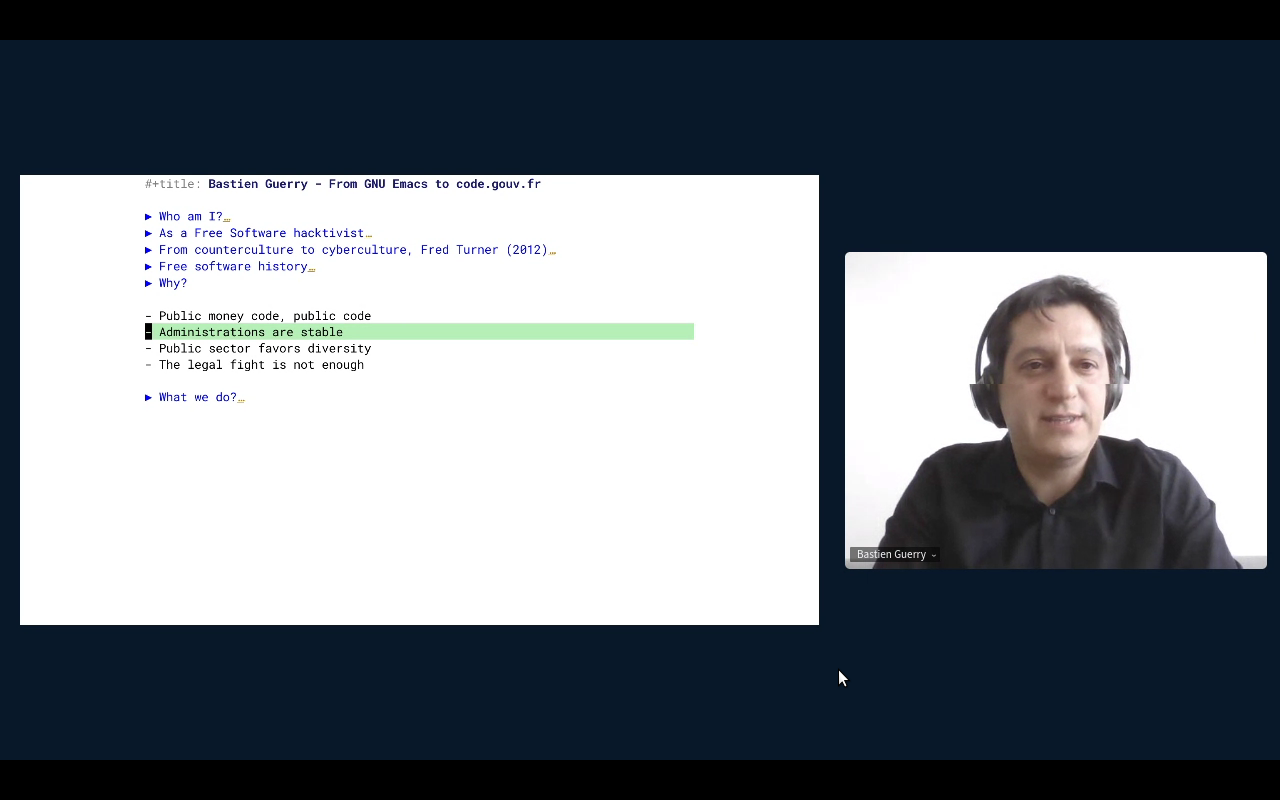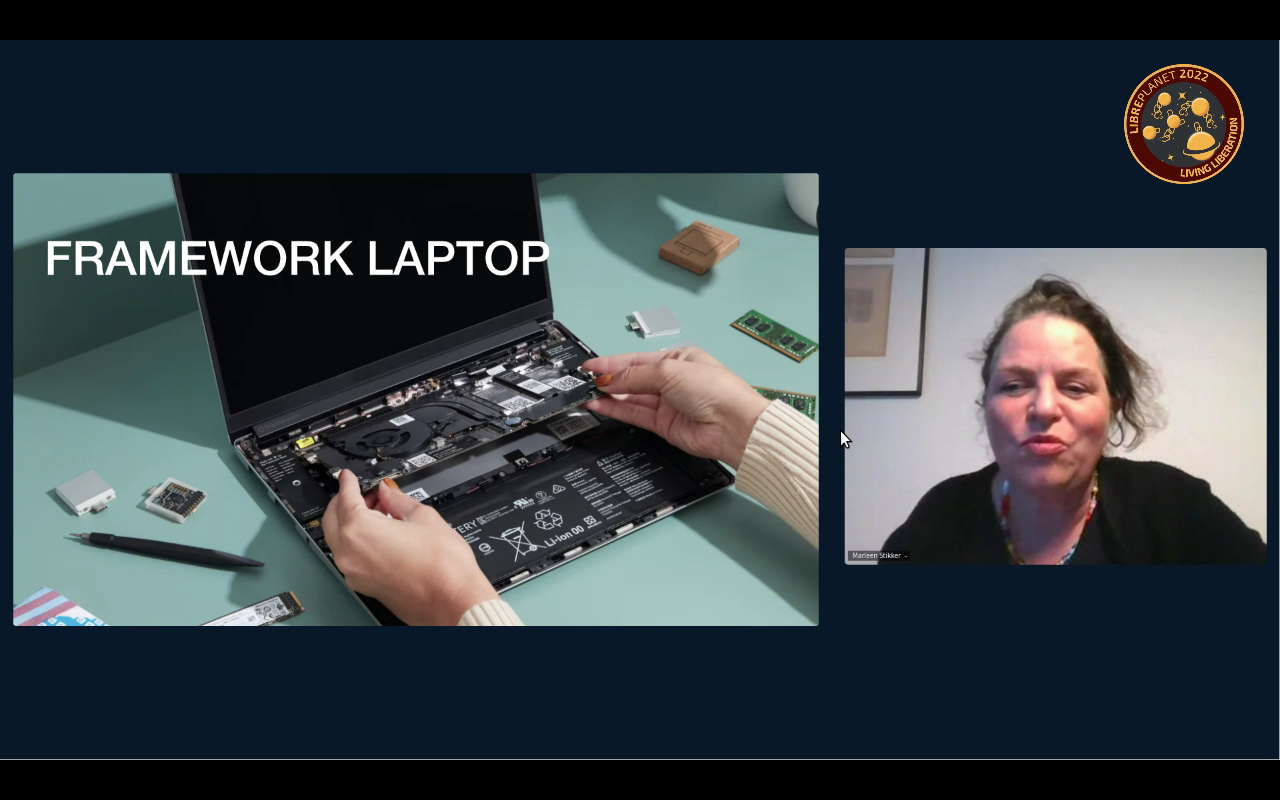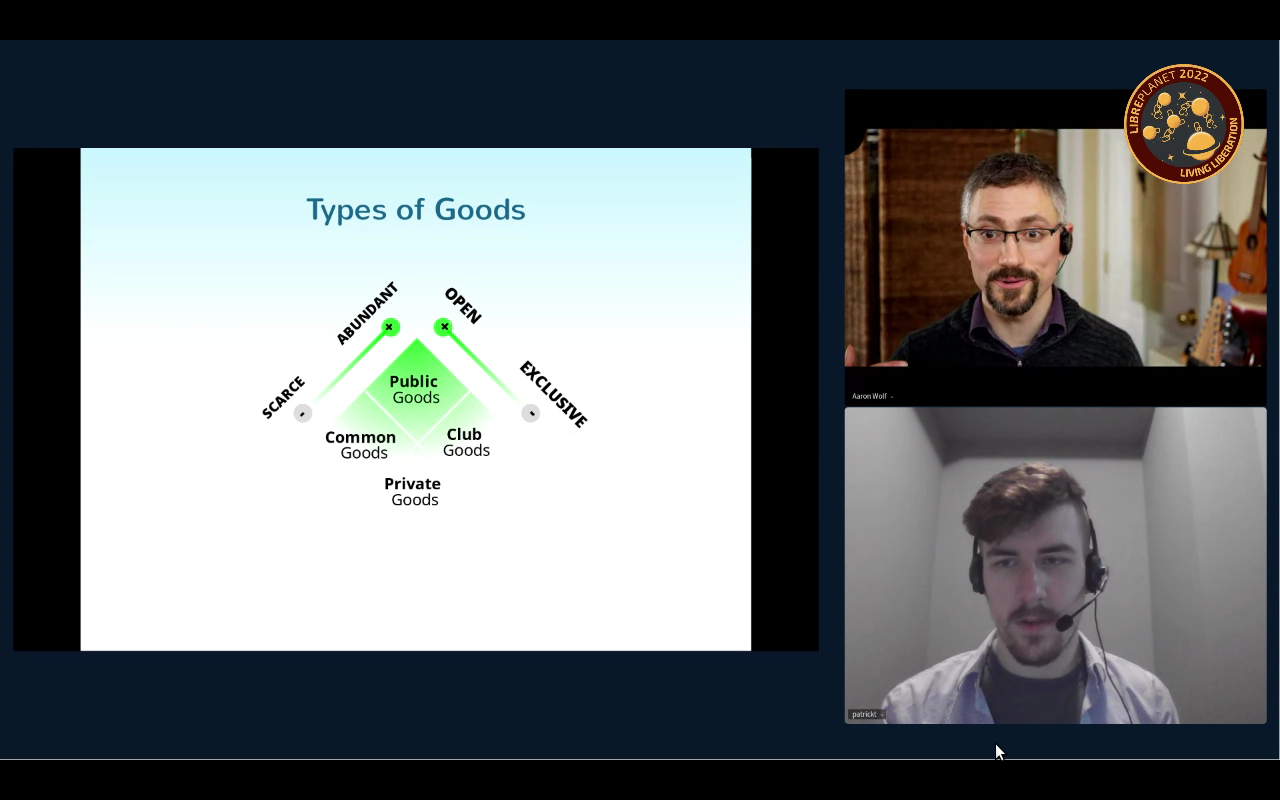|
Please consider adding [email protected] to your address book, which
will ensure that our messages reach you and not your spam box.
Read and share online: https://www.fsf.org/blogs/community/day-one-reflections-for-libreplanet-living-liberation
Dear Free Software Supporter,
Today marked the first of two days of events and talks for the Free
Software Foundation's (FSF) annual conference, LibrePlanet. This
year's theme is "Living Liberation," and the talks and activities are
centered around how to live a more liberated life in the modern world.
To start the conference off, campaigns manager, Greg Farough,
gave opening remarks, introduced the day's events and other activities
outside of the main conference, and asked participants to report which
countries they were attending from.
Of the countries represented, we heard from: Brazil, Canada, Finland,
Haiti, Iran, Italy, Singapore, Spain, Sweden, (various states within
the) United States, and many more.
From GNU Emacs to code.gouv.fr
There were many talks today, and there is much to be said about all of
them, but here are some highlights.
 Early in the program, Bastien Guerry spoke about hacktivism and
the work people like himself have done toward creating just laws via
code.gouv.fr. He spoke about "Public money, public code," and the
progress made towards bringing free software into government
administrations. They help governments to publish their code, so that
others may benefit as well. For example, software is published so that
citizens know that their data is not being tracked (e.g. COVID-19
contact tracing).
Opening keynote
 This year's opening keynote was Marleen Stikker of Public
Stack, and was scheduled in the middle of the day to accommodate
global time zones. Stikker's talk addressed what she calls the
"technology stack" and what we can do to achieve a more
"freedom-respecting stack."
Marleen shared that, before the conference, FSF staff asked, "What
operating system are you going to use?" A good and important question
for a conference, but not a common one. Of mobile devices she said,
"If you own a device, you should have the right to change its firmware
and drivers." Moving on to talk about infrastructure, she mentioned
"it should a public utility." The talk was well received, as Marleen
touched upon many of the issues faced by people who try to liberate
their lives more and more every day.
Ethical e-books
Later in the day, Nicholas Bernhard spoke about the challenges
and opportunities to "building an ethical e-book." He explained how,
while the redistribution of physical books are permitted under
"first-sale" doctrine, e-books are often not, "since the publisher is
merely offering access, not ownership, the law does not apply." The
main thesis of Nicholas's talk centered around the freedom to read,
saying that you should be able to "read a book, or e-book, on your own
terms."
Digital devices are driving us further away from the way we understand
reading and ownership. He said, "Very often, we are reading by the
publisher's permission." Nicholas followed with a statement of
support to free software, saying, "That is why I think free software
is essential to an ethical e-book."
For this conference, Craig Topham of FSF's Licensing and Compliance
Lab conducted a trivia quiz game, keeping people entertained during
the lunch break. The winners have been announced. First prize goes to
Luukas Ahola, second prize goes to Lovish (IRC nickname), and third
prize goes to Juan Luis Gonzalo.
Why our economy fails public goods like free software
 Near the end of the day, Aaron Wolf, founder of snowdrift.coop,
gave an overview of various economic models and the implications for
free software. He even, to the audience's delight, sang a phrase from
the "Free Software Song."
The day concluded with this year's Free Software Awards ceremony,
followed by closing remarks. This year's recipients of the awards are
Paul Eggert, Protesilaos Stavrou, and SecuRepairs. As the ceremony was
conducted virtually this year, each winner selected the person they
wished to present them the award.
Each recipient submitted a pre-recorded acceptance speech. Paul
Roberts, of SecuRepairs, in his acceptance speech said, "You cannot
afford to sit this one out," referring to the fight for the Right to
Repair. Recipient of the Award for the Advancement of Free Software,
Paul Eggert, gave a talk about his work on the Time Zone Database
(TZDB), highlighting some of the challenges they have to deal with to
keep the system running smoothly. Recipient of the Award for
Outstanding New Free Software Contributor, Protesilaos Stavrou (also
known as Prot), is on our schedule for Sunday at 14:30 - 15:15 EDT
(18:30 UTC), and we are working with Paul Roberts of SecuRepairs, who
won the Award for Projects of Social Benefit, on a future date to talk
at the FSF.
Coming Sunday
Sunday, we have many more talks by many more fantastic speakers!
The lineup includes everything from command-line graphic design (with
Manufactura Independente) tricks to "The state of software
patents in 2022," with (Panos Alevropoulos), to "brain hacking,"
with Rubén Rodríguez, and more! Hundred Rabbits is
Sunday's keynote with their talk that explores "the dangers and
shortcomings of relying on always-online proprietary platforms," and
the FSF is conducting the closing keynote.
Please join me in thanking the tech team for doing such incredible
work pushing through all the challenges (as well as taking advantage
of all the wonderful opportunities in running a fully free (as in
freedom) event. For those who attended today, I hope that you enjoyed
the conference, and that you can attend tomorrow as well. Don't miss
this year's LibrePlanet day two!
Devin Ulibarri
Outreach & Communications Coordinator
Images Copyright © 2022 Free Software Foundation, Inc., licensed under
Creative Commons Attribution 4.0 International license.
|